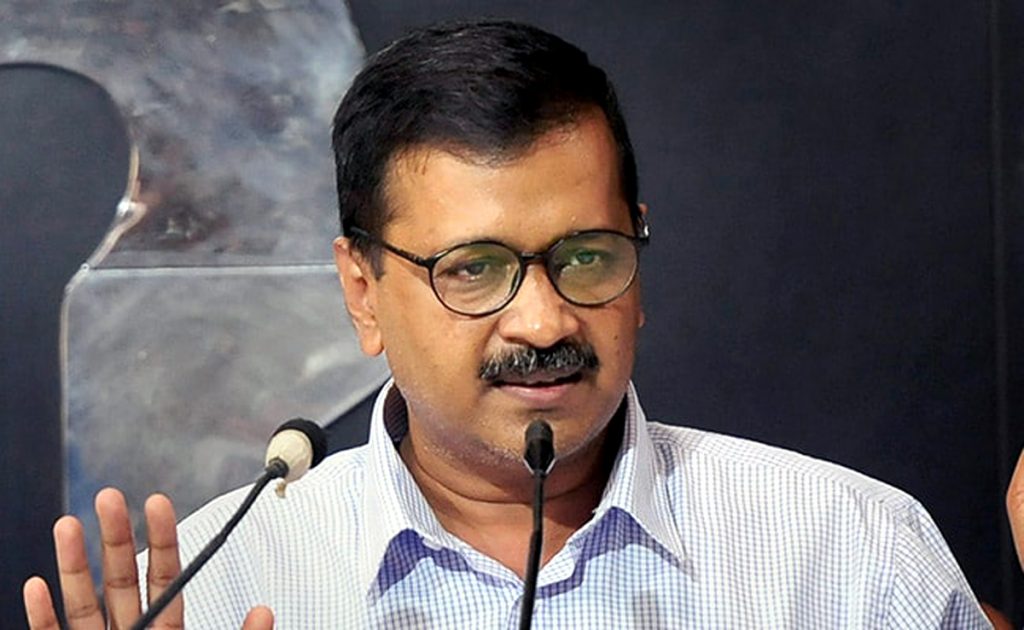New Delhi: Ahead of Diwali and the stubble burning season, Delhi Chief Minister Arvind Kejriwal Friday announced a seven-point Action Plan to protect the city from air pollution, including re-introduction of the Odd-Even scheme between November 4 and 15.
Addressing the media, Kejriwal said that the odd-even scheme — under which vehicles will ply alternately on odd and even dates as per their registration numbers — would be implemented in the national capital for 12 days.
“Studies have shown that the odd-even scheme had reduced air pollution in Delhi by 10-13 per cent,” he said.
The Kejriwal government had introduced the same twice in 2016 with a fine of Rs 2,000 on violators. Details about the scheme will be announced soon.
Giving other points of the ‘Parali Pradushan Action Plan’, he said that these include anti-pollution masks, a community Diwali laser show, and tree plantation, among others.
He said that the Delhi government is procuring masks on a large scale, and will make it available to people soon.
“The masks will protect people from damage due to pollution and ensure they are safe. N95 category masks are being procured, which are the best masks for this purpose.”
The third step would be a community Diwali laser show to be organised by the government on the eve of the festival of lights.
“As we know, the Supreme Court has prohibited the bursting of crackers in Delhi. In the winter season, the temperature inversion leads to stagnation of the polluted air and causes breathing troubles for humans and animals. Using crackers to celebrate Diwali will exacerbate the problem. All of us will come together and celebrate on the eve of Diwali with a mega laser show. Entry to the event will be free. Venue and other details will be announced in the coming days,” he said.
He also said that in order to control dust on roads, the frequency and area of water sprinkling will be increased. “Sweeping the roads will be completely mechanised and we will collaborate with the MCDs in this respect,” said Kejriwal.
The fifth point was special plans to be devised to deal with the 12 identified pollution hotspots in the city, he said, adding that this would also encompass measures to curb the common practice of leaf-burning.
“The sixth point of the action plan is the appointment of two environment marshals for each ward in Delhi, who will work with RWAs to ensure no such burning takes place,” he added.
Kejriwal also said that the government will be launching the ‘Delhi Tree Challenge’ as the seventh point, adding that they will home deliver a sapling to the house of anyone who wants to plant a tree, and it would then be this person’s responsibility to take care of the plant.
Expressing confidence that the action plan will help to combat air pollution during coming months, the Chief Minister recalled how the city turns into a “gas chamber” due to the huge air pollution caused by smoke coming from Punjab and Haryana.
“The Centre and these states are trying to prevent this from happening. But until that happens, we must take steps to protect ourselves from the toxic air created due to crop burning,” he said.
Last week, the Chief Minister had shared data from the Central Pollution Control Board (CPCB) that showed PM 2.5 concentration in Delhi declining 25 per cent over the last three years. He had also sought suggestions from the public on how to prepare for the crop burning season.
“In one week, the government has received 1,200 emails from citizens, based on which the ‘Parali Pradushan Action Plan’ has been designed. This is in addition to the Graded Response Action Plan (GRAP),” Kejriwal added.
On the government’s strategy to combat pollution post November, he said that this plan will turn into the ‘Winter Action Plan’, without the odd-even and the community Diwali programme.
On the government’s preparedness for enforcement of measures to tackle pollution, he said: “We are also setting up a war room to look into complaints and grievances. Schools will be prepared for pollution through awareness campaigns.”
Kejriwal also shared his government’s longer term vision to combat pollution.
He said already 4,000 buses are being procured. “Soon we will notify the bus aggregator policy, under which the private sector will be encouraged to invest in luxury buses, so people use these buses instead of their private vehicles.”
He said that the Delhi government was also undertaking a massive route rationalisation program for all bus routes.
“We are trying to efficiently manage routes to ensure maximum frequency of buses is on the busier routes. This will take 2-3 years to implement. Combined with an enhanced bus fleet, this will improve bus frequency substantially.”
He also said that the bus arrival status will soon be available at every bus shelter.
Kejriwal also said that the Metro Phase IV is already being implemented, and for last mile connectivity, small electric vehicles will be used.
“In the next one month, we will also notify the Electric Vehicle Policy, considered one of the most progressive policies in the country. 1,000 electric buses are being purchased. In the future, we must shift towards electric vehicles.”
(IANS)
